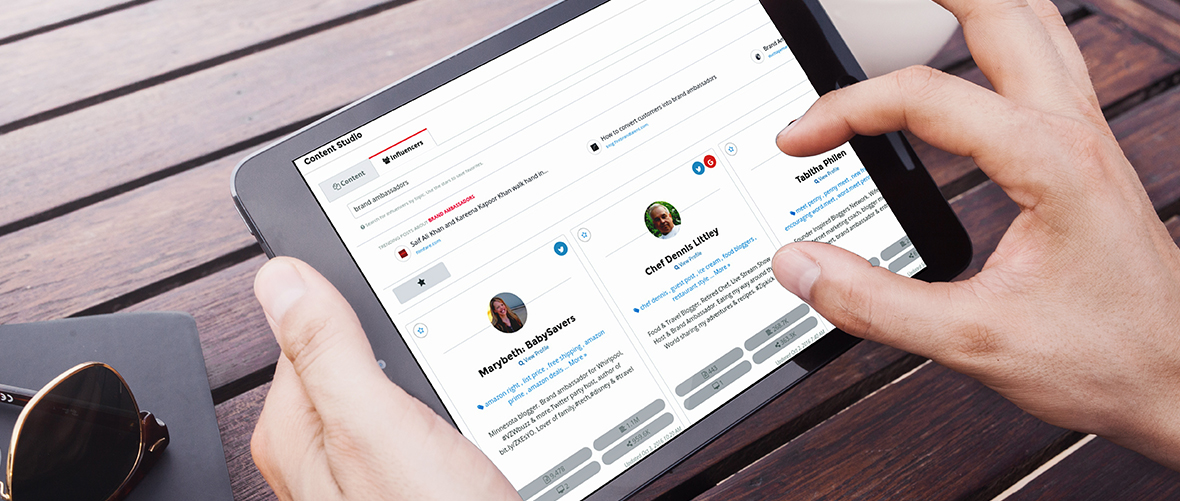You know you need help creating content, and you plan on hiring freelance writers to get that help. Good for you — hiring freelancers is a great idea. You even know where to find them. So what’s the next step?
Now it’s time to start vetting your freelancers.
>> Download the Ebook: How to Successfully Find, Hire & Work With Freelancers
Before you contact a freelance writer, you should:
Read their previously published work
Any freelance writer who’s worth hiring will have published work on the web. Read through as much of their work as you can to get a good idea of their style. What industries are they writing about? Are their articles easy to read? Do you like their voice? Reading their previously published work will help you figure out if they’re worth contacting.
Check them out on social
You don’t have to Facebook friend a potential freelance writer, but it’s a good idea to check out their social profiles, especially on LinkedIn. Many freelancers have recommendations, endorsements and clients listed on their profiles.
Check them out in ClearVoice’s Content Studio
If you’re looking at hiring a particular freelancer, plug their name into ClearVoice’s Content Creation Platform. You’ll find a photo of the freelancer, see samples of their published work, and browse through their specialties. This is a good way to make sure the writer you’re thinking about is a good choice for your brand.
After you contact a freelance writer, you should:
Ask them the right questions
When you’re interviewing a freelancer for your content creation, make sure you have answers to the following questions. Answers will help you understand what to expect from the relationship, as well as what the freelancer’s strengths and weaknesses are:
- What industries do you specialize in?
- How do you deal with writing about things you’re not an expert in?
- What kind of writing do you do most often?
- How would you go about doing research for a new piece of content?
- Do you have experience interviewing experts and turning them into stories?
- What’s your philosophy about what makes content great?
- Do you incorporate SEO into your work?
- What do you charge? Do you have any minimums?
- Do you require a deposit?
- How many revisions are included in your rates?
- How much lead time do you need before completing a piece?
Jay Baer of Convince & Convert told us he likes to add two more to the mix:
- What happens if I don’t like the work you deliver?
- What can I give you to make this job easier and give it the greatest possible chance of success?
According to Stacy Jackson, a freelance writer based in the Tampa/St. Petersburg area, some clients will ask her when they can expect to see a return on investment. “This question is particularly the case when it’s a writing assignment that includes search engine optimization for the purpose of improving organic traffic or when the project is for a small business,” Jackson said. Remember that no freelancer can guarantee ROI.
The point of these questions is to get a feel for the writer, not to stump them. It’s OK if they don’t incorporate SEO into their work, and they don’t need to include more than one revision in their rates either. The idea is to get a feeling for who they are, not rule them out.
Get references
Good freelancers will be able to refer you to other clients who can tell you what it’s really like working with them. The best freelancers will have a whole list of people who can vouch for them. If you contact the references, be respectful of their time. Ask them if they’d recommend the freelancer, what they think their strengths are, and if they think they’re a good person to hire.
Ask for relevant samples
Although the freelancer will have published work online, they may have ghostwritten pieces or other relevant samples they can show you. Ask them for specific samples, such as ones from your industry or directed at your target audience. This will give you a good idea of whether or not the freelancer has worked on similar stuff. Sometimes, freelancers are under nondisclosure agreements and can’t show your work from particular clients.
Pay for a trial piece
You don’t have to commit to a long relationship with a freelancer, and that’s the beauty of hiring freelancers over full-time employees. So when you begin the relationship, commission a trial piece. Ask them to complete a certain assignment, and see how they do. Just make sure you pay for the trial piece — the best freelancers will not do spec work and may be insulted if you ask.
Understand the nuts and bolts
Many freelancers have their own contracts they use, while others are willing to work without contracts, or will sign one you provide. You should make sure you understand the details of your contract, such as who owns the work and what is included in the contract. Freelancers are 1099 employees, which means you’ll need to collect W9s from them. Additionally, they may have their own systems — such as requiring deposits — to ensure they get paid.







